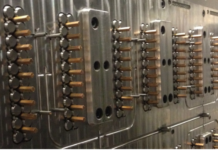
Some professions seem to be on everyone’s lips and have existed for quite a long time. But if you ask what they mean, many people will not even be able to describe their essence in detail. For example, such a profession as a trader, leading its history since the 15th century, when the first commodity exchanges began to appear, albeit in a form distant from modern understanding.
The fact is that the profession, of course, is on the lips but not in sight, unlike, for example, the work of a doctor, teacher, policeman, or builder. The same applies to people that make money with no deposit bonus India. So, who is a trader, and how to become a trader? So, let’s sort it out and start, of course, with who a trader is. Otherwise, it won’t be easy to understand what you want to become.
Who is a trader?
The trader definition is not identical to the professional activities of the salesman standing behind the counter or the sales manager. Instead, this term refers to people who trade at the stock exchange, currency, and commodity markets.
For example, a person who trades in the grain market is called a grain trader. A person who trades in oil is called an oil trader. All in all, about a hundred of the so-called “exchange commodities” are sold at commodity exchanges.
Thus, the profession of a trader has its specializations, similar to many other jobs. For example, there is a surgeon, general practitioner, pediatrician, and ophthalmologist; a teacher of physics, chemistry, literature, and music; and a front-end- and backend developer. And so everywhere. Therefore the person who has firmly decided “I want to become a trader” should define in the beginning what exactly he would like to trade. And only then start to understand what is necessary to become a trader.
All of them will have nuances of financial and technical nature that one will have to get into to avoid losing money. Of course, an experienced trader can work with different assets simultaneously. Still, for beginners, the best option is not to disperse efforts but to get into the profession step-by-step.
If you doubt your preferences or you do not care, as long as you are sure that you can earn, it is worth studying materials on how to become a trader from the zero level in different spheres.
What kind of education does a trader need?
Formally, there are no education requirements for applicants to trading education courses. And no one asks for a diploma from those who want to open a demo account. However, intuitively it is clear that in the stormy sea of investments in securities, currency quotations, and oil and grain prices, people with higher financial or economic education feel more confident.
In addition, mathematical thinking also helps, so those with a background in mathematics are also in an excellent position to succeed. Especially if they have a desire for stability and a desire to get an official job at a company that trades on the exchange, rather than rush into the maelstrom of independent trading, as they say, “with their head.”
So the answer to the question, “Is it possible to become a trader without education? However, education close to work profile did not prevent anyone, it can be said with certainty.
Where to work as a trader?
Most advertising campaigns, calling for trader courses and telling how to become a professional trader, emphasize the trader’s independent work and complete independence. And also on the fabulous earnings, which you can get lying under a palm tree with a laptop somewhere in the Bahamas.
Of course, it’s all good, but the way from “zero” to some decent income, which allows not to depend on sitting in the office and a guaranteed wage, can take a couple of years. And, again, not everybody, because a significant percentage of people who are not too serious in their training, in choosing a broker, in trying out different strategies, are left with nothing, losing even what they invested as seed money.
If you take the path of official employment, then you do not risk your own money because you can only dispose of the funds of the company employer in a strictly limited amount. However, such a job is not much different from any office job or the work of a sales manager who has a salary plus a percentage of the profits.
Requirements when applying for such a job also do not differ from those generally accepted in all offices of the country. You don’t need a live casino lightning roulette experience. Applicants are required to have completed higher education, preferably financial, economic, or, optionally, mathematical, fluent computer skills as an advanced user and English, which allows you to get acquainted with foreign sources of financial information.
What qualities should a trader have?
The importance of soft skills for a career in almost any activity area has not been mentioned by just a few lazy people. And it’s because the “soft skills” are critical and, combined with high professionalism, work wonders for career growth. So, what qualities are required for the trader in his work?

Top 10 most important qualities of a trader:
- Analytical thinking: market analysis will occupy up to 90% of all working hours of a trader.
- Forecasting skills: The key to profit is to draw the correct practical conclusions from the analysis of the situation and choose the best strategy.
- Calmness and resistance to stress: the currency and stock markets are subject to fluctuations, often very strong, and it is important not to panic in order not to waste money.
- Quick decision-making: the situation may change in a few minutes, so you must not miss the moment when you can maximize your profits.
- Adequacy: You need to be able to make clear and reasonable demands on trade so that the terms are favorable enough for your potential trading partners while also keeping you in the black.
- Planning skills: Despite the apparent spontaneity of falling and rising quotes, a trader must be able to determine the strategy for all major cases.
- Discipline and self-discipline are equally vital in hired work and self-employment and even more critical in the second case. The lack of control should not be an excuse to relax and stop watching the market.
- Observation: this is the only way to catch the obvious and unobvious patterns of price movements, falling or rising prices, and much more, which helps to make decisions.
- Excellent memory: in combination with developed observation, it will allow quickly forming an array of the necessary information for decision-making.
- Curiosity: various factors, including economic, political, and others, influence the state of markets.
- The last point should be considered in more detail. A professional trader, who plays long term, must not only keep abreast of world events. He must know thoroughly the state of affairs in the company whose shares he will work with.
If a trader deals with currencies, he should choose a currency pair he intends to work with and thoroughly study the relations of these countries, their economic and political ties, and critical figures in politics and big business. Only then can he count on the widely advertised super profits in the future.


















